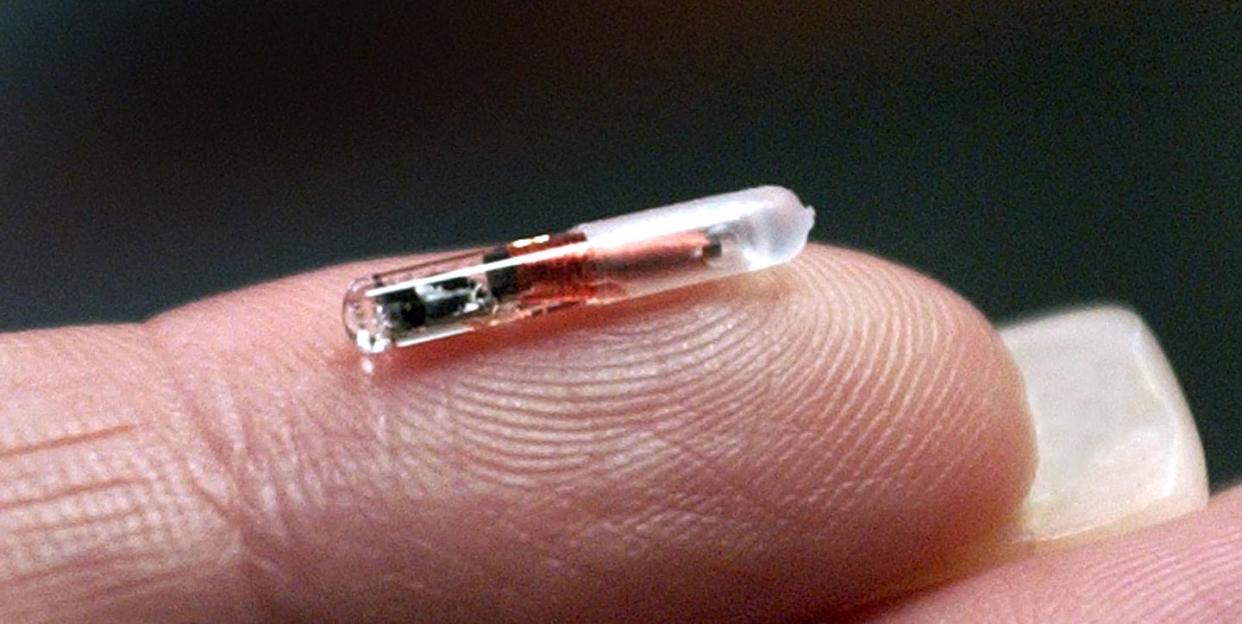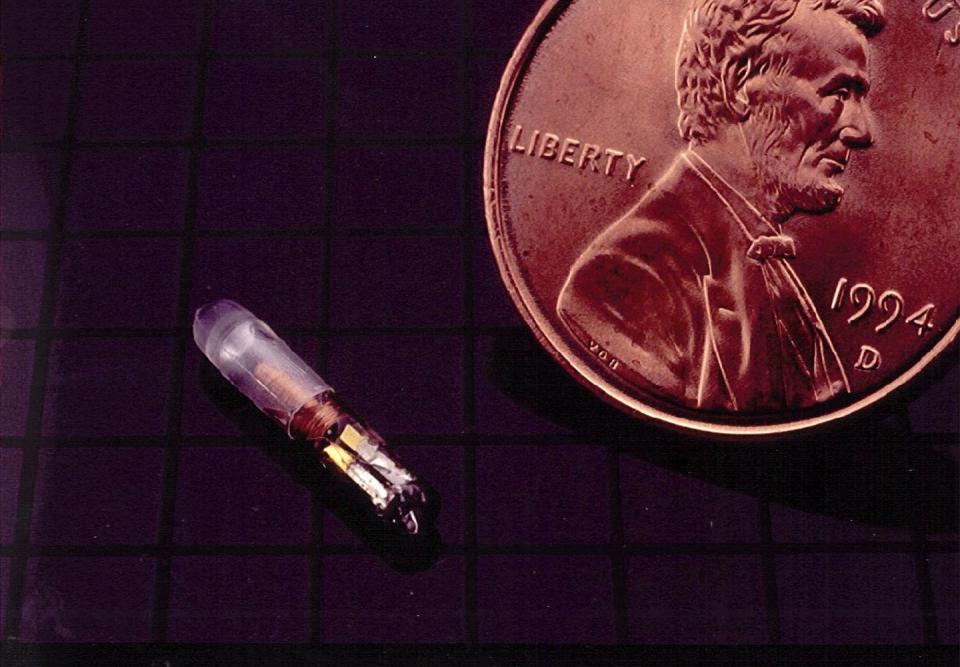Michigan Makes Worker Microchips Voluntary ... Wait, What?

Although not yet a mainstream practice, some companies have forced workers to get microchips implanted in their fingers to replace building access badges.
These are radio-frequency identification chips (RFID) that biohackers have long embraced to push the limits of their bodies.
The Michigan House of Representatives has taken a preventive measure against the tech, passing a bill on June 24 to make microchipping voluntary.
If you adopted your pet from a rescue shelter, they probably have a microchip embedded just beneath the skin on the back of their neck. It's a tiny radio-frequency identification (RFID) chip that's no larger than a grain of rice, and it helps you find your furry friend if they ever get lost.
Now, in a strange twist, you could also have a microchip just like it, as some companies have adopted the tracking technology in lieu of keys or traditional building access badges.
Last week, however, the Michigan House of Representatives took a preemptive strike against the technology, passing a bill to make the microchips voluntary in the state. The Microchip Protection Act would allow Michigan employers to use microchipping, but could in no way force employees to participate.
"With the way technology has increased over the years and as it continues to grow, it's important Michigan job providers balance the interests of the company with their employees' expectations of privacy," Rep. Bronna Kahle, the Republican who sponsored the bill, said in a press statement.
She continued:
"Microchipping has been brought up in many conversations as companies across the country are exploring cost-effective ways to increase workplace efficiency. While these miniature devices are on the rise, so are the calls of workers to have their privacy protected."
Worker microchips first made headlines in 2017 when 50 out of 80 employees at a Wisconsin company called Three Square Market voluntarily opted into the implant at a "chip party."
In a press release at the time, the company said employees had the option to "voluntarily implant an RFID microchip between the thumb and forefinger underneath the skin" that "does not have tracking capabilities, [and] will allow employees to make purchases in the company's break room market, open doors, log in to computers, and use copy machines."
By most accounts, worker microchips haven't really caught on since then, and chip suppliers say that in most cases, the technology is used as a publicity stunt for media attention, or to wow employees with a "cool factor."
In February, Amal Graafstra, CEO of Dangerous Things—a Seattle-based implantable chip manufacturer and distributor—told MarketWatch his company's chips start at about $50, plus another $50 fee for insertion, which doctors or piercers usually complete.
Meanwhile, biohackers—or "grinders"—have been implanting themselves with these kinds of RFID chips for years. These DIY body hackers hope to improve their bodies' functionality and see the microchips as a way to fuse the biological with the cybernetic. Last year, a software engineer even embedded her Tesla valet key into her arm.
Michigan's proposed ban would fall in line with laws in other states that protect workers from mandated microchipping. In 2006, Wisconsin became the first state to pass a law to make it illegal for employers or government agencies to implant RFID microchips into people without their consent.

That move came two years after the U.S. Food and Drug Administration (FDA) said a Florida company, Applied Digital Solutions, could market VeriChip, an implantable computer chip, for medical purposes.
Research at the time suggested 90 percent of Americans were uncomfortable with that kind of technology—and 3 years later, the company shuttered, mostly due to studies that suggested a link between RFID transponders and cancer in lab animals.
Fourteen years after VeriChip's initial approval, five states have banned mandatory chipping practices. Michigan could become the sixth if the Microchip Protection Act passes in the state Senate.
That's likely for the best. Hackers have long been able to clone building access badges, which are also based on RFID technology, and there are new concerns that employers could use the microchips to spy on workers.
You Might Also Like

